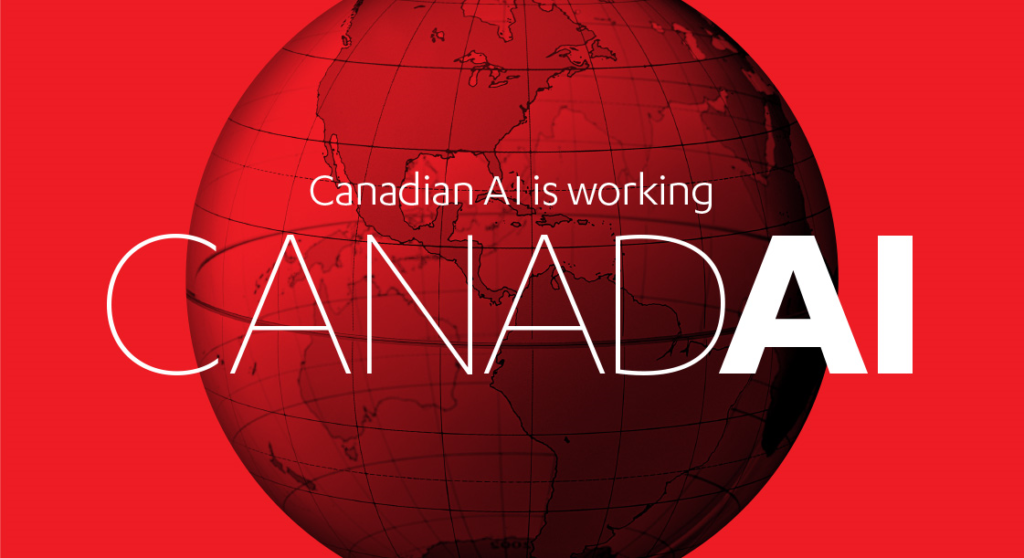Introduction: AI in Canada meeting
Artificial intelligence (AI) is transforming the world in unprecedented ways. From health care to transportation, from education to entertainment, AI is reshaping how we live, work, and play. But how is Canada positioned to take advantage of this opportunity? And what are the challenges and opportunities that lie ahead?
Canada has a long history of excellence and innovation in AI research and development. In fact, some of the pioneers of AI, such as Geoffrey Hinton, Yoshua Bengio, and Richard Sutton, are based in Canada and have contributed to the advancement of the field in areas such as deep learning, reinforcement learning, and natural language processing. Canada also boasts a vibrant AI ecosystem, with more than 800 AI companies and several world-renowned institutions offering AI and innovation programs across the country.

Canada’s AI leadership is recognized and supported by the federal government, which launched the Pan-Canadian Artificial Intelligence Strategy in 2017 with an investment of $125 million over five years. The strategy aims to enhance Canada’s research base and talent pool, create a network of national AI institutes, and foster collaboration and coordination among stakeholders.
In June 2022, the government announced the second phase of the strategy, with an additional investment of more than $443 million over 10 years. The second phase will focus on bridging the gap between world-class talent and cutting-edge research capacity with the commercialization and adoption of AI across the Canadian economy. The strategy will also promote the responsible development and use of AI, grounded in human rights, inclusion, diversity, innovation, and economic growth.

The government is partnering with various organizations to implement the strategy, including CIFAR, the national AI institutes, the Standards Council of Canada, and Canada’s Global Innovation Clusters. These partners will work together to ensure that Canadian values are embedded across widely used global technology platforms and to foster diversity and cooperation across the AI domain.
Canada is also committed to developing and implementing ethical and regulatory frameworks for AI, in alignment with international standards and best practices. For example, Canada was the first country to adopt the Directive on Automated Decision-Making, which provides guidelines for the use of AI by federal departments and agencies. Canada also contributed to the historic G7 Hiroshima Process, which resulted in the adoption of the G7 AI Principles, a set of common values and objectives for the development and use of trustworthy AI.

Moreover, Canada recently unveiled a Canadian code of conduct for advanced AI systems, which provides a voluntary and self-regulatory mechanism for AI developers and providers to demonstrate their commitment to ethical and responsible AI. The code of conduct complements the ongoing efforts of the government to craft legislative and regulatory frameworks for AI, such as the proposed Artificial Intelligence and Data Act (Bill C-27), which aims to protect the privacy and personal information of Canadians in the digital age.
Canadian AI strategy and initiatives are not only driven by the government but also by the private sector, the academic community, and civil society. Many Canadian organizations and individuals are using AI to create positive social and environmental impacts, such as improving health care outcomes, enhancing food security, combating climate change, and empowering marginalized groups.

For instance, Microsoft Canada is partnering with various organizations to leverage AI for good, such as Toronto’s University Health Network (UHN) and BC Cancer, which are using AI to advance cancer research and treatment. Microsoft Canada is also working with Ontario Power Generation (OPG) to shape a net-zero and environmentally resilient future where AI solutions are instrumental in powering new energy insights, matching local carbon-free sources, reducing emissions, and shaping a sustainable energy landscape.
Canada is meeting the opportunity of AI by investing in research and innovation, developing ethical and regulatory frameworks, and fostering collaboration and cooperation among stakeholders. also demonstrating its leadership and vision by using AI to address some of the most pressing challenges and opportunities of our time. Canadian is not only a global leader in AI, but also a global force for good.


